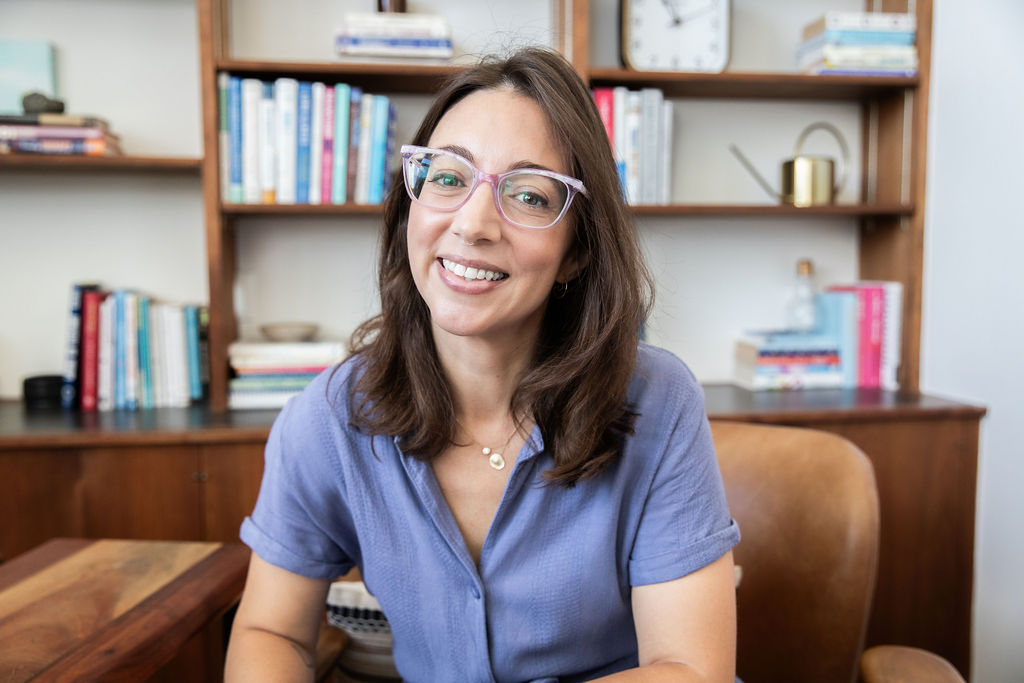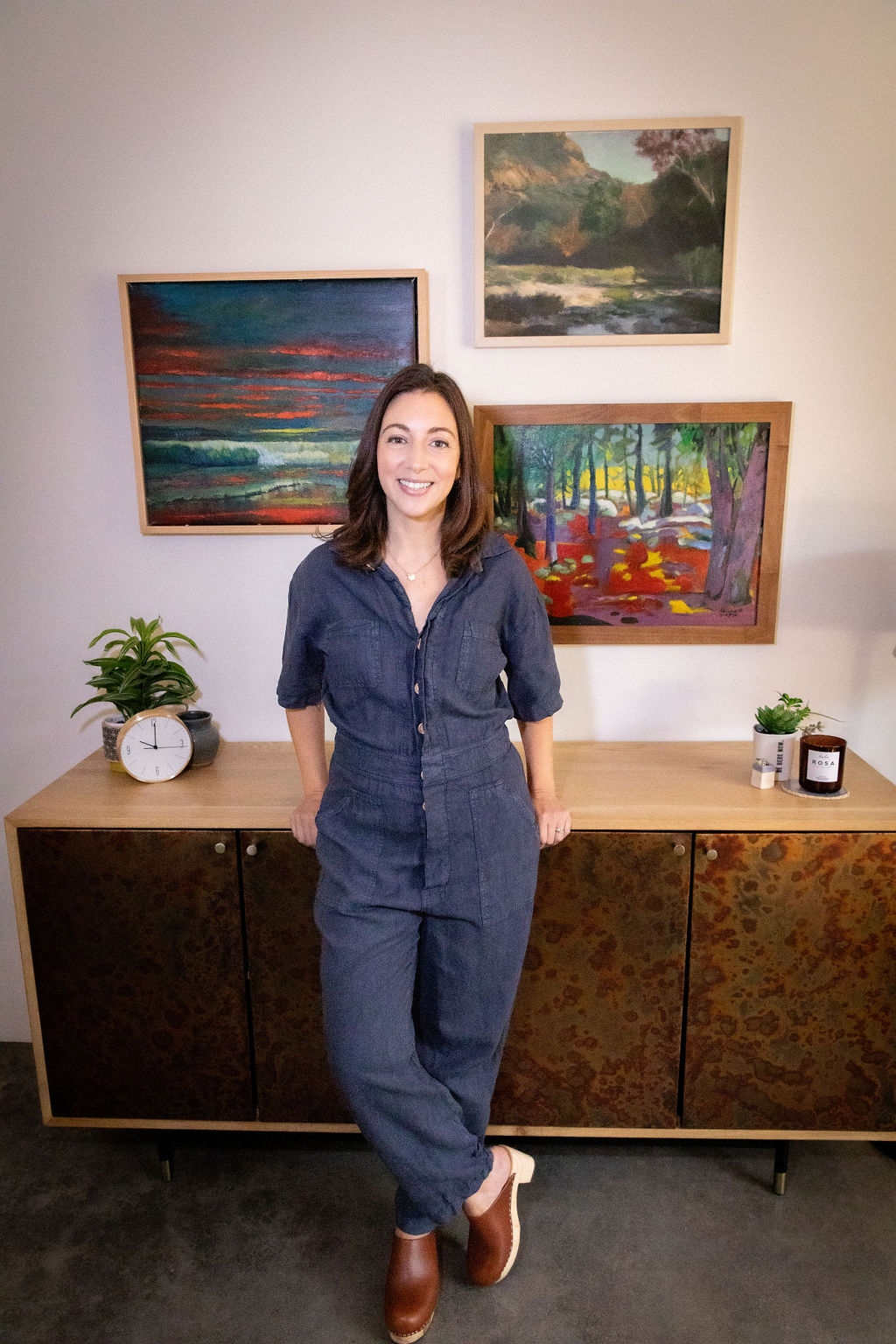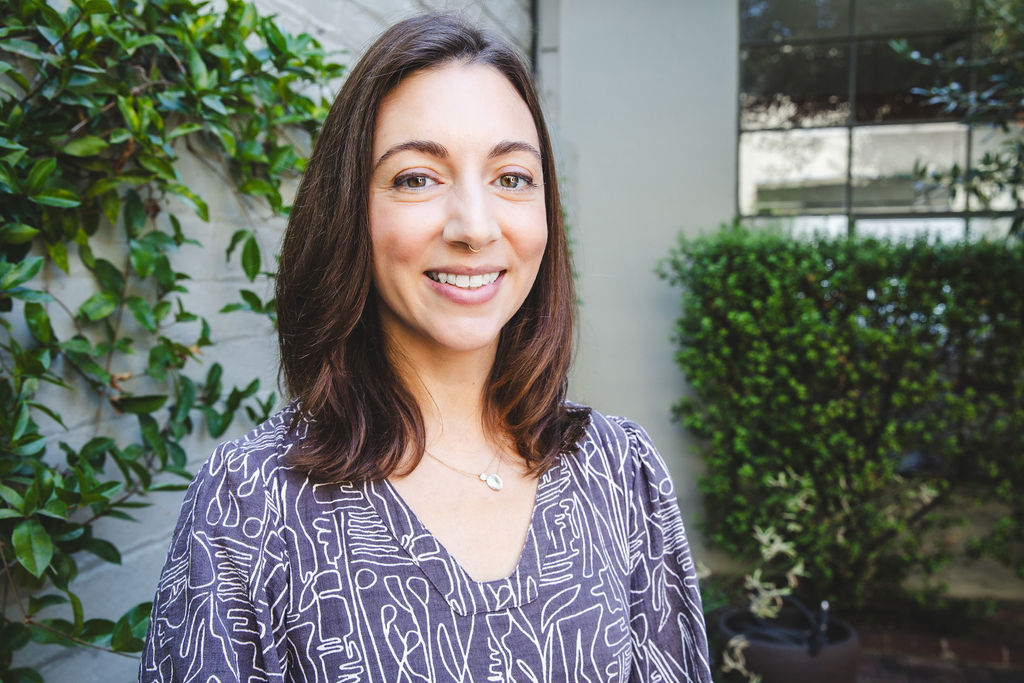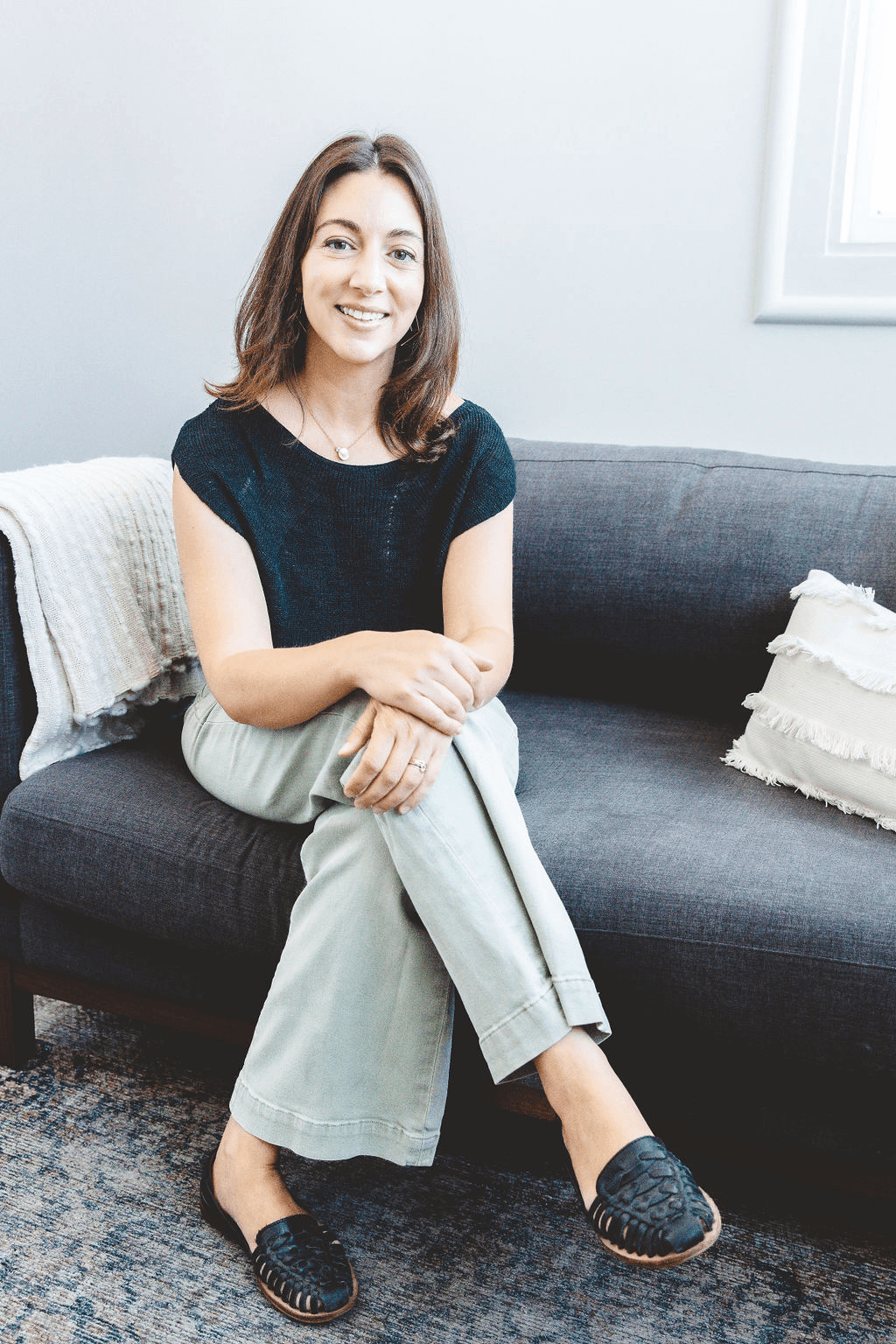We recently connected with Saba Lurie and have shared our conversation below.
Saba , thanks for joining us, excited to have you contributing your stories and insights. To kick things off, we’d love to hear about things you or your brand do that diverge from the industry standard
As a boutique group practice, we’re committed to caring for our therapists so they can, in turn, provide the highest level of care to our clients. This means prioritizing ongoing learning and growth. It’s not enough to hire compassionate, skilled clinicians. We believe in showing up with humility, acknowledging our blind spots, and actively working to expand our skills.
To support this, we host a practice-sponsored book club and read together as a team, choosing titles that challenge us and help deepen our clinical work. We also attend trainings, seek outside consultation in our areas of specialization, and consistently push ourselves to grow.
Just as importantly, we regularly seek feedback from our clients to ensure they feel seen, supported, and that our work truly honors their needs and goals.
Our hope is that from the very first point of contact, clients feel held and seen. We believe this is only possible when our team, including our therapists and care coordinator, are also cared for, supported, and valued.

As always, we appreciate you sharing your insights and we’ve got a few more questions for you, but before we get to all of that can you take a minute to introduce yourself and give our readers some of your back background and context?
As a woman, a first generation person of color, and someone who identifies as queer, my lived experience deeply informs the work I do. I am also a Licensed Marriage and Family Therapist and a Board Certified Art Therapist, and I founded the boutique group psychotherapy practice, Take Root Therapy.
My introduction to therapy was as a client. Since childhood, I have seen a number of therapists. Some were truly helpful, and some, unfortunately, did more harm than good. Those experiences shaped how I think about therapy and what it can offer. When I began to consider the kind of work I wanted to do and what I value, becoming a therapist felt like the natural choice. I have always wanted to be of service, and the opportunity to support people on their journeys while using art to help them find their voices and live more authentically just felt right. It called to me like nothing else had.
Over the years, I have worked with clients from many different backgrounds, including those with limited access to care and those with more resources. I realized I wanted to support as many people as I could but needed to do it in a way that was sustainable. While I loved the nonprofit work I did, the systems often led to burnout. I valued my clients deeply but did not always feel valued within the organizations I worked for.
The desire to be of service, to offer compassionate and thoughtful care, to build something that honors both clients and therapists, and to help people find the right therapist even if that therapist is not me is what led to the creation of Take Root Therapy.
In my own experiences with therapy, I found that I felt more able to be vulnerable when I was in a space that felt warm and welcoming. At Take Root Therapy, we have worked to create that same kind of environment for our clients. Our offices, located in the Los Feliz and Atwater Village area of Los Angeles, have been thoughtfully designed with comfort in mind. Clients have told us it feels like a soft place to land and that is exactly what we hope to offer. From the furniture to the snacks, hot tea, and a fridge full of cold La Croix, our goal is to help you care for yourself while we care for you.
We also pay attention to the smaller details. We use recycled paper towels and glass soap dispensers to reduce plastic waste, and we operate as a paperless business to minimize our environmental impact.
We know that therapy can be hard and sometimes just getting there is a challenge. That is why we also offer virtual services so even if driving, parking, or fitting a session into your day feels overwhelming, you can still access the support you need.

What’s a lesson you had to unlearn and what’s the backstory?
As a woman from a collectivist culture, I had to unlearn my people-pleasing tendencies and challenge the idea that if I want to provide true care, I have to do it for free. Unfortunately, society often undervalues the work women do and the labor that goes into caregiving. Teachers make very little, and many of us who work in service to others face the same reality. We are told that if we love what we do and care deeply, we should not ask for anything more.
When I finished graduate school, I was already carrying debt. My first nonprofit job as an associate therapist barely covered my rent. I was fortunate to find a paid position because many associates take unpaid roles just to get their hours or even pay for supervision while earning nothing.
I stayed in the nonprofit world for a while because I loved the work, but I never felt financially stable. I picked up extra jobs driving for a rideshare company and tutoring at night. Eventually, I started seeing clients in private practice during evenings and weekends, taking whatever payment they could offer.
Things shifted when I was hired as a contract therapist at a private pay Intensive Outpatient Program. The fees for therapy and groups were set by the program, and I received a percentage of that. I was still working full time and doing this work in what little free time I had, but I was excited to see clients eager to work with me. It felt good to know I could do the work I cared about and get paid for it.
I stayed with the program until I had my first child. That moment pushed me to take a hard look at the value of my time and work. To do the work I loved, I had to pay someone else to care for my child, who I cared about just as much. I was also paying for office space and learning the tough reality of taxes and expenses when you work for yourself. I had to take a tough look at the reality I was facing and reconcile it with the realities of capitalism and the need to earn enough to support myself and my family. I had to consider what would allow me to have breathing room and take care of myself in order to provide care for others. It took time to get comfortable asking for money and to ask for what felt like a lot without apologizing. Over time, it became easier, and I was able to challenge the narratives that had kept me struggling and could have led to a career of being overworked, which would also mean that my clients were not receiving the quality of care they deserve.

Any stories or insights that might help us understand how you’ve built such a strong reputation?
I believe that consistency and genuine care have helped us build a strong reputation in our community. The world of therapy has seen so many trends, and there are now countless options available, including virtual services that often cost much less than what we charge at our practice. While I’m truly glad that people can access therapy at different price points, and that this increases accessibility, I did worry for a time about what this might mean for Take Root Therapy. Still, we stayed the course, focusing on providing a high level of care with clear boundaries and expectations. We invested in ongoing trainings and in our team, and we make sure to show care and compassion to everyone who reaches out.
Contact Info:
- Website: https://www.losangelesmftherapist.com
- Instagram: @takeroottherapy
- Linkedin: https://www.linkedin.com/in/saba-harouni-lurie
- Yelp: https://www.yelp.com/biz/take-root-therapy-los-angeles-2


Image Credits
Photos Taken By Helenna Santos


